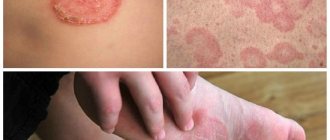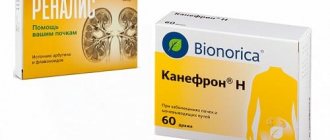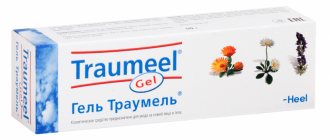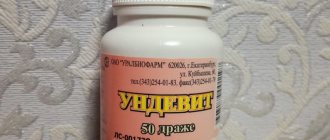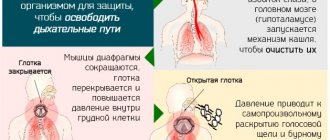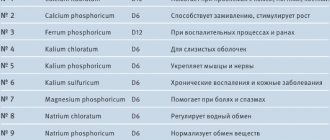Chemical composition and release form
Apis (homeopathy is one of the types of traditional medicine) is produced by the pharmacological industry in several varieties: granules, suppositories for rectal use, oral drops and an injection form of the drug.
Apis mellifica are granules that contain:
- dextrinized starch;
- honey bee venom.
Apis Plus, drops for oral use, containing:
- mellifica bee venom;
- spore-bearing evergreen plant Moss;
- oxygen compound of silicon;
- substance from seaweed ash;
- methylcarbinol.
Apis Hel is an injection drug with the composition:
- bee apitoxin meliffica;
- sterile water for injection;
- sodium salt of hydrochloric acid.
The article discusses in detail the homeopathic remedy Apis and its effectiveness.
Rectal drug Apis - the drug contains:
- bee apitoxin;
- extraction of blackened lumbago;
- black cohosh extract;
- marigold flowers;
- extraction from the tree of life;
- animal wax
pharmachologic effect
Each release form of a homeopathic remedy has its own pharmacological action.
- The granules are designed to relieve the inflammatory process in the body as a whole or to influence individual pathologies of the human body.
- Suppositories for rectal use exhibit anti-inflammatory, analgesic and antihyperemic effects in diseases of the genitourinary system in men and women.
- Apis drops - a medicine intended to relieve severe inflammation of tissues and the surface of the skin, which is expressed in swelling, burning, itching due to immunological disorders in the body.
- The injectable drug manifests its effect in the form of relieving hyperemia of the visceral organs and musculocutaneous tissues, and is used to treat inflammatory pathologies of individual organs and circulatory failure.
DOSES
R. Hughes always uses the 3rd decimal dilution for acute edema. For dropsy, Dr. Marcy generally prefers lower dilutions, below 3; for skin diseases he uses above 3rd. As for bladder irritation, it never goes below 6. The most striking cases of cure of eye diseases have occurred at 30.
The consequences of a bee sting will always resemble the main characteristic symptoms of Apis
: burning prick, pinkish swelling, severity of symptoms.
Apis
may be indicated in all diseases involving edema or dropsy. Excessive sensitivity to the slightest touch, aggravation from heat and lack of thirst will be excellent guiding symptoms, as will the sensation of constriction that may appear in various organs.
Antimonium tartaricum Contents Argentum nitricum
Indications for use
Apis (homeopathy, a type of alternative treatment) has its own indications in various forms.
Apis mellifica granules should be used as monotherapy and in combination treatment of the following pathological processes in the body:
- tonsillitis – acute form and long-term progressive;
- phlegmon with damage to the lymphatic system;
- nettle fever;
- allergic dermatitis;
- inflammatory process of the pleural membrane of the lungs;
- astheno-neurotic syndrome;
- psycho-emotional instability, in complex therapy;
- mood disorders (bipolar disorders);
- inflammation of the cerebral cortex in complex therapy;
- excessive excitability of the subcortical layer of the central nervous system;
- autoimmune pathologies;
- damage to the knee, hip, shoulder and elbow joints;
- general edema due to kidney diseases;
- acne;
- hyperemia of the throat due to an infectious disease caused by streptococcus A;
- pastiness of the body;
- increased body temperature;
- polyneuropathy with the manifestation of paresthesia and burning pain;
- acute and long-lasting form of oophoritis.
Apis-plus rectal suppositories should be used:
- inflammatory diseases of the uterine appendages in women, both chronic and acute in complex therapy;
- pseudo-erosion of the cervix;
- menstrual irregularities;
- PMS, in complex therapy;
- ovarian neoplasms of inflammatory etiology;
- inflammation of the unpaired androgen-dependent organ;
- non-infectious inflammation of the prostate gland;
- to improve urine drainage in inflammatory diseases of the genitourinary system in men.
Apis Comp Job-Plus - oral drops that should be used for the following diseases:
- neurogenic-allergic skin lesions;
- catarrhal-exudative allergic reaction of the body;
- damage to the skin of various etiologies;
- inflammatory lesions of the skin with the appearance of blisters filled with fluid and severe itching;
- juvenile acne, acne disease;
- purulent-necrotic lesion of the hair follicle;
- long-term non-healing damage to the skin and tissues of unknown etiology;
- autoimmune pathological processes of the body;
- connective tissue diseases;
- inflammatory diseases of the respiratory system in the acute stage and long-term progressive;
- accumulation of synovial fluid in the joint capsule;
- spontaneous abortions;
- pathological accumulation of a large amount of cerebrospinal fluid, which interferes with the normal functioning of the brain;
- vascular tension syndrome.
The injection drug Apis Gomaccord Hel should be used for pathological processes:
- focal lesions of the central nervous system in the form of epilepsy;
- meningeal syndrome;
- subdural hemorrhages;
- epidural hematomas;
- visceral edema of organs and tissues;
- heart failure;
- discirculatory encephalopathy, dysmetabolic;
- accumulation of fluid in the pericardial cavity;
- inflammation of the pulmonary alveoli;
- acute inflammatory pathologies of the bronchi;
- long-term progressive damage to the bronchi;
- pharyngitis;
- disturbances of blood circulation in the pulmonary circulation system.
CHARACTERISTIC
Edema and dropsy, local and general (in the absence of thirst).
The pain is burning and stabbing, as from hot needles, always relieved by cold.
Drowsiness.
Lack of thirst even during attacks of fever.
Can't stand heat.
Extreme sensitivity to the slightest touch. The slightest touch is very painful, a feeling of bruising and squeezing.
Urine scanty with dark, coffee-like sediment.
Diseases of the right ovary.
Cramps and contractures, worse from heat.
High-pitched screams in sleep or unconsciousness.
Worse in the afternoon - from 16 to 18 hours.
Alternating dry skin and perspiration during fever.
Pain. At the same time, burning, as if from a hot coal, and piercing, like needles, very sharp, extremely strong and quickly spread throughout the body. They always improve with cold and movement.
Chair. Or constipation, because the patient cannot make any effort to defecate, as he then feels sharp pains in the abdomen, or diarrhea, especially in the morning, extremely smelly, worse after eating, caused by the most insignificant movements. Apis
It is mainly used for a special form of diarrhea observed in children, when the stool is mixed with mucus, blood and food debris, which makes it resemble a tomato.
Menses. Heavy bleeding with a feeling of heaviness in the abdomen, poor health and characteristic stabbing, burning pain, a tendency to miscarriage in the 3rd and 4th months.
Amenorrhea with a cerebral phenomenon, after a fright, in girls.
Dysmenorrhea with characteristic pain in the ovaries, especially in the right one.
Directions for use and dosage
The homeopathic medicine Apis is produced by the pharmacological industry in four varieties, each of which has its own method of use and dosage.
- Granular preparation Apis mellifica should be taken up to 10 pieces at a time (depending on the severity of the pathological process and the prescription of a homeopath or therapist), dissolving in the oral cavity, preferably under the tongue. It should be consumed 2-4 times a day. The course of therapy is from 20 to 40 days. Repeated treatments, if necessary, are prescribed by the attending physician.
- Apis rectal suppositories from the recommendations of the instructions for use should be used for 1 rectal suppository (should be inserted deeply into the rectum) in the evening. The course of therapy should be continued for 1-2 months, unless there are other recommendations from a gynecologist, proctologist, urologist or surgeon.
- The injection drug Apis Gomaccord Hel can be used intramuscularly, intravenously, subcutaneously and intradermally (as necessary) - it all depends on the pathological process and the prescription of the attending physician. The product should be used in complex therapy, for severe diseases - 1 ampoule should be added to a medicinal product intended for intravenous drip injection, 1 time per day. For mild processes, it is necessary to use up to 3 times a week in accordance with the prescription of the attending physician. The duration of therapy determines the general condition of the patient.
- Apis oral drops should be used 40-60 minutes before meals or an hour after meals, 5-15 drops (depending on the severity of the disease process), which must be diluted in a small amount of liquid. You need to put the product diluted in water into your mouth and rinse for a couple of minutes. The liquid should then be swallowed. The procedure should be done once a day, possibly before bedtime. The course of treatment is about 60 days, but sometimes longer, as prescribed and recommended by a homeopath or other specialist.
Apis Mellifica
| Buy | Apis Mellifica® , Granules | registered and produced by BOIRON (France) |
| FORM OF RELEASE, COMPOSITION AND PACKAGING | ||
| ◊ Homeopathic granules | Breeding | |
| Apis Mellifica | C5 | |
| -«- | C9 | |
| -«- | C15 | |
| -«- | C30 | |
4 g – pencil cases with a granule counter (1) – cardboard packs. Excipients:
sucrose, lactose.
Registration number and date:
LP-000956 dated 10/18/11
Group affiliation:
Homeopathic monocomponent preparation of animal origin
PROPERTIES*
Apis mellifica is a honey bee from the order Hymenoptera (Hymenoptera) of the true bee family (Apidae).
Chemical composition:
- dopamine, adrenaline and norepinephrine;
- carotene;
- potassium in large quantities.
Bee venom contains:
- enzymes - phospholipase A2, hyaluronidase;
- peptides - melitin, apamin, MCD-peptide (English - Mast Cell Degranulating peptide);
- histamine, dopamine, norepinephrine and serotonin;
- free amino acids - alanine, arginine, cystine;
- acetylcholine;
- lipids;
- monosaccharides (monoses) - glucose, fructose;
- isoamyl acetate (volatile substance).
The composition of the drug indicates the possibility of early and rapid action of the drug in inflammatory reactions. In addition, phospholipase A2 and melitin have an immunogenic effect. The action of Apis mellifica is fast, but short-term. All dilutions are active, but it is preferable not to use Apis mellifica in dilutions below C9 due to the presence of phospholipase A2 and melitin in the mother tincture, which have a strong immunogenic effect.
APPLICATION AREA
Key symptoms for prescribing the drug
- pain syndrome;
- edema;
- burning.
Main clinical applications
The basis for prescribing the drug Apis mellifica can be all swelling of an allergic or inflammatory nature:
- local in nature (insect bites, first degree burns, palpebral edema, edema of the female external genitalia, post-traumatic edema, inflammation of the foreskin, boils in the initial stage, phlebitis of the superficial veins and periphlebitis after an etiological conclusion excluding thrombophlebitis or phlebothrombosis);
- general (solar erythema, polymorphic photodermatosis, urticaria, erythema multiforme, angioedema);
- hives:
allergic origin (plants, foods, medicines);
caused by food intolerance or drug toxicity;
· cholinergic urticaria, often of unknown origin;
· urticaria of physical origin - prurigo, caused or aggravated by contact with water;
· contact urticaria (plants, cosmetics, occupational allergic diseases).
Etiological investigation of severe acute urticaria and chronic urticaria should be carried out to ensure elimination of the allergen and to avoid the occurrence of serious anaphylactic manifestations requiring appropriate treatment.
Otorhinolaryngology
- edematous rhinosinusitis;
- pharyngitis and tonsillitis of non-streptococcal origin with swelling of the uvula of the soft palate. Relieving sore throat from cold water.
Ophthalmology
- conjunctivitis, chemosis.
Rheumatology
- post-traumatic hydrarthrosis and acute inflammatory arthritis with pink-red edema.
Infectology
- pleurisy and pericarditis of viral origin, sometimes in combination with allopathic therapy; Usually with fever there is a lack of thirst.
Urology
- interstitial cystitis with decreased urine output, increased protein content in the urine, swelling without thirst, anasarca.
Gynecology
- pain associated with the appearance of milk;
- pain associated with ovarian cysts;
- inflammation of the ovaries (especially the right one).
Neurology
- headaches or vasomotor migraine.
Apis mellifica is prescribed when there is obvious improvement in the treatment of pain with cold compresses; in physiopathological terms, the prescription is justified by the presence of inflammation with an edematous component, which accompanies vasomotor disorders.
METHOD OF APPLICATION AND DOSES
Sublingual.
The granules must be dissolved in the mouth 30 minutes before meals or 60 minutes after meals.
Children from 0 to 3 years old
The granules are pre-diluted, shaking, in 10-15 ml of water at room temperature and given to drink.
The optimal amount per dose is 5 granules.
To determine the dilution, frequency and duration of administration, a doctor’s consultation is necessary.
SIDE EFFECT
Not described to date.
CONTRAINDICATIONS FOR USE
- individual sensitivity to the drug;
- lactose intolerance.
SPECIAL INSTRUCTIONS
The dosage regimen and frequency of administration are determined by the doctor.
If there is no therapeutic effect within 3 days, or if adverse reactions occur, you should consult a doctor.
OVERDOSE
To date, no cases of overdose have been reported.
DRUG INTERACTIONS
When treating with Apis mellifica, other medications may be used.
STORAGE CONDITIONS AND EXPIRATION DATES
The drug should be stored in a place protected from light and moisture, at a temperature of 15-25°C. Keep away from children. Shelf life – 5 years.
CONDITIONS OF VACATION FROM PHARMACIES
The drug is available without a prescription.
*Boericke, William. Materia Medica of homeopathic preparations, M.: Homeopathic Medicine, 2016.-720p. Morrison R. Deskbook of key and supporting symptoms. –M.: Homeopathic Medicine, 2016.- 536 p. Monique Quillard. Schemas &protocols Pediatrie.- 2015, CEDH France- 282c. Denis Demarque, MD † – Jacques Jouanny, MD Bernard Poitevin, MD – Yves Saint-Jean, MD †. PHARMACOLOGY AND HOMEOPATHIC MATERIA MEDICA.- 2003, CEDH France- 960c.
Manufacturer
BOIRON, 2, Avenue de l'Ouest Lyonnais, 69510 Messimy, France
Address of the production site 20, st. Libération, 69110 Sainte-Foy-le-Lyon, France 2, Avenue de l'Ouest Lyonnais, 69510 Messimy, France
Representative in Russia/organization receiving consumer complaints
LLC "Boiron", Moscow, st. Dolgorukovskaya, 7 Tel.: (495) 956 08 10, fax
Use during pregnancy and lactation
According to scientific research and descriptions of instructions for use, Apis preparations can be used during pregnancy, as well as breastfeeding. But the situation in which the woman finds herself should be taken into account. The body's reaction may not be the same as that of an ordinary person, even if the drug was taken before pregnancy and there were no negative manifestations.
If it is necessary to use the drug Apis, in any form, the woman should be under the supervision of a gynecologist who will monitor the amount of the drug and the patient’s condition.
Contraindications
The main contraindication to the use of Apis is personal intolerance to the main or auxiliary components of the drug.
You should also not use homeopathic medicine for the following pathologies:
- all types of hepatitis;
- disorders of the body's hepatobiliary system;
- history of allergic reactions;
- malignant neoplasms;
- metastasis of the body;
- the granules contain carbohydrate, so their use in diabetes is limited;
- conditions in which the immune system cannot be stimulated.
Storage Features
Each type of homeopathic remedy Apis has its own conditions and storage time.
- The rectal product should be stored in a cool place without access to light, but not below 0 degrees. The shelf life of the drug is no more than 24 months from the date of release of the suppositories.
- The granulated form of the medicine must be kept in a place protected from light and children, for no more than 36 months, at a temperature of 15 degrees to 25 degrees Celsius.
- Apis oral drops must be stored at a temperature of 14 degrees to 24 degrees Celsius, no more than 3 years from the date of manufacture.
- The injection drug in ampoules should be stored for no more than 24 months at a temperature of 10 to 20 degrees Celsius.
Where can I buy?
All varieties of the homeopathic medicine Apis can be purchased at online pharmacies, and a prescription from a doctor is not required.
The price of the drug depends on the form of the drug:
- granular form of Apis varies from 30 rubles. up to 450 rub. (depending on dosage);
- Apis rectal suppositories can be purchased at a price of 200 rubles. up to 250 rub.;
- the cost of oral drops Apis Comp Job-Plus varies from 3,000 rubles. up to 3500 rub.;
- ampoules of Apis Gommacord Hel can be purchased at a price ranging from 130 rubles. up to 180 rub. for 1 ampoule.
Combined medications containing Apis
The pharmacological industry currently produces a large number of medicines that contain apitoxin or bee venom.
Apilak Grindeks tablets:
- the main active ingredient of the tablets is the secretion of the bee glands apitoxin, milk sugar, floury wheat carbohydrate, silicate powder, stearic acid with calcium;
- the effect of the drug is due to the main component, which fights inflammatory processes in the body, strengthens the immune system, has a calming effect on the nervous system, strengthens the walls of blood vessels, and normalizes blood pressure;
Apisatron injection:
- the drug consists of honey bee venom in dry form;
- the drug has the property of influencing the central nervous system: it eliminates increased excitability and impaired motor skills. It has a strengthening effect on blood vessels, reduces the amount of bad cholesterol, and normalizes triglyceride levels. Improves blood quality in the form of thinning it and reducing thrombus formation, and affects the stabilization of pathological blood pressure numbers. Improves blood movement through capillaries, thereby helping to fill the body's cells with oxygen.
Virapin in ampoules:
- the composition of the medicinal liquid for injection includes honey bee venom, the anesthetic procaine, and a medical sterile liquid;
- the drug has an anti-inflammatory effect on the body, helps reduce pain, stimulates the immune system, and promotes overall strengthening of the body.
APIS
Honey bee. This remedy was introduced into therapy by Dr. Marcy from New York, who in 1847 drew attention to it after treating one of his patients with dropsy, whose kidneys stopped working as a result of ingesting powder from oven-dried bees.
Pure tincture is prepared from bees. They are turned into a dough-like mass in a mortar, which is infused in 90° alcohol. Rubs are also made from live bees by rubbing them with milk sugar.
Original pathogenesis of Apis mellifica
appeared in American Drug Science. A summary of the symptoms is found in the British Homeopathic Journal, Volume II, page 392, and in the American Homeopathic Review, July 1865. Konstantin Hering gave a summary of his own tests in his Pathological Studies.
Opinions about the effectiveness and safety of the product, reviews
The homeopathic remedy Apis in all forms has good reviews on the Internet. The drug is especially loved by young mothers and older people when chronic vascular and neurological pathologies appear. The only drawback that Apis has (according to people who have used the medicine) is long-term therapy with the drug.
The homeopathic drug Apis is liked by both patients and doctors who prescribe it because of its multifaceted positive effect on the human body.
MAIN INDICATIONS
EDEMA. Swelling of the genitals, ameliorated by cold. In all cases where phenomena similar to those that cause a bee sting are observed - acute swelling, burning stings, heat, redness, naturally, you need to think about Apis
.
Swelling of the pharynx, tongue, lips.
Sore throat with swelling. No redness or soreness Belladonna
, nor the parenchymatous process of
Baryta carbonica
, but when examining the throat, it seems as if a bee flew in there and stung in several places, since there is swelling of the entire submucosal tissue covering the tonsils, uvula, soft palate and even the back of the hard palate.
In acute swelling of the skin, whether erysipelas or from urticaria, we will have pathological conditions most characteristic of Apis
.
With Apis
indicated by edematous swelling,
Belladonna
by inflammation,
Rhus
by phlyctenes.
Hives. Apis here
, naturally, is an important tool.
SEROUS EFFUSIONS. For pleurisy with Apis
is one of the best means of resorption of liquid.
Apis
and
Cantharis
will cure most of these cases. Synovitis - in particular of the knee. It is indicated when there is pain that is sharp, shooting, stabbing, piercing the joint, worsening with the slightest movement.
Dropsy. Symptoms that are indications for Apis
: translucent pallor of the skin and lack of thirst.
Apis
is especially useful in renal dropsy, scarlet fever or other origin.
In meningitis and in irritation of the meninges, symptoms pointing to Apis
, the following: the child presses his head into the pillows and constantly turns his head from one side to the other, wakes up with a sharp, piercing cry caused by pain. In addition, he usually experiences convulsions on one side of the body, while the other remains motionless, as if paralyzed.
DISEASES OF THE KIDNEY AND BLADDER. Inflammation of the kidneys at the beginning. Cystitis. Urinary incontinence, with frequent painful urination; urine mixed with blood, in a small amount.
OVARIAN DISEASE. To the right ovary of Apis
has the same affinity as
Lachesis
and
Thuja
for left. Ovarian enlargement. Ovarian cyst.
EYE DISEASES. Apis
very often cures scrofulous ophthalmia.
It is especially indicated for corneal lesions. If the connective membrane is predominantly affected, Ipecacuanha
(it is often necessary and beneficial to alternate these two remedies). Retinal detachment.


